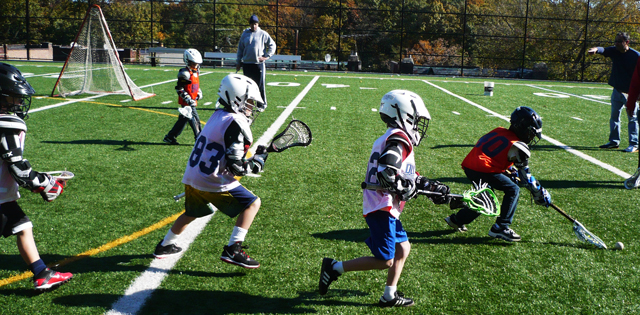The most important part of my job is to listen and learn from heroes. All over this country, men and women are sacrificing their time and energy to coach at-risk kids in sports. These coaches have no money, no equipment, and no uniforms. But they have a commitment to kids; in many cases, to kids who have been given up on. Here's a few stories I heard in just the past few weeks:
In Miami, I met a coach who goes into the public schools and asks the principals to give him the most dangerous kids roaming those hallways. “The kids who have been incarcerated, who everyone has given up on.” He then plucks those kids out of the school, one by one, and takes them fishing. That's right, he takes them fishing. For many of these teenage males, they have never spent any quality time with an older male. In poorer African-American communities, these kids see gangs and violence as the only way to prove their manhood. But fishing alongside of an older male who looks just like them but chose a different path in life is all they need to see their lives differently. "They don't even have to talk to one another," the coach told me. "Just being in each other's presence is sometimes all it takes." The coach told me that after a dozen years, he recently received his first donation of tackle boxes. He's still trying to get enough fishing rods to give one to every child in the program.
In New Orleans, I met a football coach who told me how he spent a year preparing his kids to have the confidence to play in a football tournament. "They practiced every day," the coach said, "and they committed to staying in school and staying out of trouble." But when the tournament came, even the coach couldn't change the outcome. "When the kids got to the field, they were in awe. The other teams had uniforms and pads. Our kids only had t-shirts and tennis shoes. If you could see the defeat on their faces before the game even began. They felt that they just weren’t good enough. They immediately turned around and got back on the bus.” The coach is still looking for donations of uniforms.
In New York, I sat with a retired man as we watched a group of boys playing basketball. All of the boys were from a nearby housing organization where he still sits on the board of directors. Thanks to Coach Across America, his son was now their basketball coach. I asked the dad what else these kids needed besides a coach. "Trophies," he answered, "every one of them.". He then explained: "I can point to each of the boys on this court and tell you a story you wouldn’t believe. Who's in an abusive home, whose brother was just sent to prison, who doesn’t get fed a decent meal, whose parent is an addict, who was sent away to live with an aunt. Against all these odds, these boys get together every afternoon with my son and instead of joining a gang or doing drugs, they play basketball and commit to their future. Yet, no one has ever pressed pause and given them a trophy.” “Why?” I asked. “Because we don’t have the money to buy them one.”
Volunteer…
Donate uniforms or equipment…
Like many of you, I still have my trophies on the wall from when I was kid.
Paul Caccamo Executive Director





![[WATCH] Morgan Stanley Innovation Awards Features Up2Us Sports](https://images.squarespace-cdn.com/content/v1/58bddd12e58c6278e8a670e2/551e2744-c233-46e6-850d-bac0223d8f13/MHA+Innovation+Feb+2023+1.jpg)










